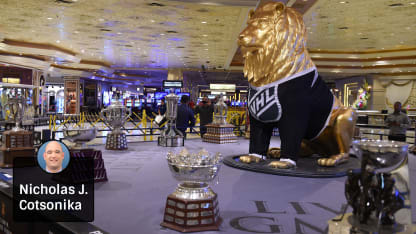Bottom line: It does not make sense to collect a $500 million expansion fee and add a team in the short term unless it will grow the game and the business in the long term, not when that expansion fee will be split 30 ways, the owners' share of future revenue will be split 31 ways instead of 30, and successful teams will have to help support the new team if it struggles.
Nothing is guaranteed, but all jokes aside, the Board of Governors believes Las Vegas currently presents the best odds of long-term success.
The NHL is in a much different place today, in more ways than one.
The League grew from 21 to 30 teams and stretched its geographic footprint southward from 1991 to 2000, adding nine teams and relocating three others. But until now, it had not expanded since then, and Atlanta to Winnipeg has been its only relocation.
The game has grown in places that were considered untraditional, and traditional markets are among those reaping the benefits. The Toronto Maple Leafs, an Original Six team in the so-called "Centre of the Hockey Universe," are expected to select Auston Matthews with the No. 1 pick of the NHL Draft on Friday. Matthews grew up in Scottsdale, Ariz. The son of a college baseball player, he got hooked on hockey because of the Coyotes.
The business has grown from $1.56 billion in hockey-related revenue in 1999-2000 to $4 billion today. The League has a labor agreement with a hard salary cap that splits HRR 50-50 with the players, and the agreement will be in place through at least 2019-20.


















